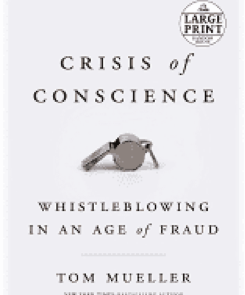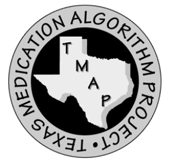
Allen Jones is a loyal friend one can count on. Allen features as the foremost whistleblower in the first chapter of the book — A Crisis of Conscience: Whistleblowing in an Age of Fraud (2019), by Tom Mueller, a Harvard graduate, who has written a comprehensive exploration of the history of whistleblowing and a psychological profile of the heroic men and women of conscience. These whistleblowers risked their career by exposing fraud and corruption at state and federal government agencies. Mueller describes the whistleblowers’ predicament when they challenge powerful government institutions whose officials engage in criminal actions, and how those crimes are covered-up by the institution.
“Beyond fighting crime, whistleblowers are raising some of the fundamental questions of our democracy. They are forcing debate on the pervasive influence of corporations, and the proper balance between free speech and secrecy, between citizen rights and state power. Whistleblower suits are being heard in the highest courts in the land. The Supreme Court itself has reviewed almost a score of them in the past two decades alone, deliberating on the evolving rights, duties and definitions of public and private whistleblowing: what constitutes a material disclosure, when does the statute of limitations run out, who actually qualifies for whistleblower status in the first place, and how free is their speech. US whistleblower laws are increasingly being used to fight corruption abroad, by companies that do business in the United States.”
Mueller confronts the rampant corruption and ethical descent in today’s “age of fraud” by profiling whistleblowers in health care, high finance, the federal departments of energy and defense, and the National Security Agency. His criticism is bi-partisan – the crimes are committed by officials of both political parties. Whistleblowers are men and women of conscience who continue to feel anguish about the fact that the corruption has not been stopped.
Allen Jones blew the whistle on one of the most lucrative pharmaceutical industry-initiated, fraudulent marketing schemes: the Texas Medication Algorithm Project (TMAP). TMAP was launched in Texas, in 1995, soon after Janssen Pharmaceuticals, a subsidiary of Johnson & Johnson, received FDA approval to market Risperdal® for patients suffering from psychosis. He uncovered evidence that TMAP was concocted by a colluding roster of high profile, academic psychiatrists, and that it was endorsed and widely promoted by state mental health officials and psychiatry’s professional associations: the American Psychiatric Association (APA), and the American Academy of Child and Adolescent Psychiatry (AACAP) – all of who received kickbacks from the manufacturers of the new, very expensive antipsychotic and antidepressant drugs. The companies were: Johnson & Johnson, Eli Lilly, Pfizer, and Novartis. TMAP was adopted by a dozen states, including Pennsylvania. The target populations of TMAP were children and disabled and elderly patients in state institutions.
TMAP relied on fraudulent marketing claims about the new drugs’ superior effectiveness – contradicting the evidence documented in the manufacturers’ own clinical trials. TMAP marketing hype transformed powerful antipsychotic and antidepressant drugs that were approved for severe psychotic disorders such as schizophrenia and clinical depression, into cash cows. Whereas psychotic disorders affect about 1% of the population, children’s behavior problems and those affecting some elderly dementia patients are estimated by experts in the field affecting as many as 3, 4, or possibly 5 percent of the population. By targeting children and the elderly vastly inflated the market of these drugs, providing enormous profits for pharma companies. Between 1997 and 2004, Texas Medicaid payments for the so-called “atypical antipsychotics” skyrocketed from $28 million to $177 million. Risperdal sales in the U.S. from 1995 through 2008 totaled $20 billion.
The adoption of TMAP by a dozen state mental health departments meant that medical professionals at all of these states’ publicly funded state institutions – including hospitals and outpatient clinics – were mandated to follow the TMAP prescribing schedule which required the use of very expensive, powerful psychotropic drugs – specifically, the SSRI antidepressants and “atypical” antipsychotics. These drugs carry black box warnings about severe, life-threatening side effects. Children were specifically targeted as a fertile market despite the fact that these drugs lacked legally required FDA approval for use in children. TMAP was, therefore, a government-endorsed criminal drug marketing scheme.
Allen Jones worked for the Pennsylvania Office of the Inspector General (OIG) for several years, then as a state probation and parole officer, where he specialized in working with addicts, foster children and the mentally ill. He witnessed how countless numbers of voiceless wards of the state were being drugged with powerful chemicals that were causing serious harm. He knew that these drugs were purchased at huge cost to taxpayers. He knew this was the kind of wrongdoing the OIG had been created to fight. So, he returned for a second tour of duty at the OIG as a fraud investigator, hoping to stop the abuse.
Allen began his investigation in 2002, after discovering that a $2,000 check from Janssen Pharmaceuticals, a subsidiary of Johnson & Johnson, had been deposited in an unnamed bank account. This account was accessed by Steven Fiorello, Chief pharmacist of Pennsylvania, whose job was to select the drugs purchased by state hospitals, foster homes, prisons, and elder care facilities throughout the state.
The atmosphere at OIG, however, had changed. His superiors instructed him to stop investigating pharmaceutical companies. When he objected, his boss, Dan Sattele, told him: “Morally and ethically, you’re right, but politically this is dead.” Sattele suggested that the drug firms had purchased impunity by contributing money to state politicians in both parties. “These companies are very aggressive marketers. They write checks to both sides of the aisle.” Soon an order came down from the office of Tom Ridge, the Republican governor of Pennsylvania, to close the investigation and to shred Allen Jones’s fat dossier of corruption.
In February, 2004, Allen Jones blew the whistle on the financial kickbacks to state mental health officials publicly in a New York Times report [a report that I had facilitated]. Within months of going public, Allen was fired by the Pennsylvania OIG. However, public disclosure of his findings of corruption led the federal government – the Substance Abuse & Mental Health Services Administration (SAMHSA) — to withdraw federal support for TMAP in October, 2005.
Since officials of the state of Pennsylvania were determined to obstruct his investigation, Allen turned to the Texas Attorney General to whom he provided his documentation, as well as his extensive expertise in unravelling the devious intricacies involved in the criminal TMAP marketing scheme. The Texas AG agreed to join Allen’s qui tam (False Claims Act) lawsuit, specifically against Johnson & Johnson and its subsidiary — Janssen, manufacturer of the antipsychotic Risperdal®, that garnered $2 billion a year.
In April 2011, Allen wrote a letter to the new Pennsylvania state leadership, including Gov. Corbett, Acting Attorney General, William Ryan, and Inspector General Kenya Mann Faulkner, offering similar information that he had given the Texas Attorney General; information that would likely expose current fraud in Pennsylvania. Allen Jones also shared his updated information with Senator Charles Grassley, whose extensive investigation of financial conflicts of interest in psychiatry identified the most prominent academic psychiatrists who secretly accepted significant consulting fees from pharma companies, and penned their name to ghostwritten reports– some received several million dollars for their service.
They include: Harvard’s Joseph Biederman, Stanford’s Alan Schatzberg, Emory’s Charles Nemeroff, Brown University’s Martin Keller, and two academics in the University of Texas system, A. John Rush and Karen Wagner. These high paid consultants promoted the use of high priced antidepressants and antipsychotics and also received research grants from the National Institute of Mental Health which provided a false veil of integrity to their research reports.
The Texas trial – the State of Texas Attorney General / Allen Jones v. J & J/ Janssen, began on January 9, 2012. Jurors were informed that the company had concealed evidence of high prolactin levels and concealed the adverse events that it triggered. And the jury heard that the J & J/ Janssen representatives had repeatedly assured state health officials with fraudulent claims –e.g., Risperdal “is better, safer, and more cost-effective than other drugs.” When the documented evidence uncovered by Allen Jones was exposed in a court of law, the truth clearly emerged: company officials knew, from their own clinical research, that Risperdal was not only not better, safer, or more effective than other drugs, Risperdal caused diabetes, heart disease, neurological damage, and lactating breasts in boys requiring mastectomies, some, committed suicide. The jury was also informed that “at the very moment when the FDA notified the company of its concern about Risperdal causing diabetes,” Janssen had accelerated its marketing to children.
A key (hostile) witness was Dr. Steven Shon, the head of the Texas Department of State Health Services. Shon was a key lobbyist for J & J/ Janssen who took more than 80 trips across the country as well as overseas to promote TMAP. His expenses were paid by the companies that made billions of dollars from the TMAP marketing scheme.
Allen Jones’ testified about why he blew the whistle:
“The first people affected by TMAP, known in Pennsylvania as PennMAP, were the residents of mental health hospitals, the people in the back wards who were helpless and defenseless to take care of themselves. They needed to trust the people taking care of them. The people responsible for them were betraying them. I couldn’t be a part of that. I wouldn’t be a part of that. So I blew the whistle.”
Soon after his testimony, Johnson & Johnson lawyers offered to settle the suit. The trial resulted in record settlements – both criminal and civil. Johnson & Johnson paid $158 million to settle the Jones-Texas AG lawsuit, followed by a federal TMAP settlement totaling more than $2.2 billion.
Mueller’s profile of Allen captures his character, his strong identification with the outsiders who are not part of privileged in society. “Perhaps because of his solitary childhood, Jones sought out tight- knit communities. He often worked as a hired hand with local Amish farmers, and was the only “Englishman,” or non–Pennsylvania Dutch speaker, who was invited to several barn raisings. He was also drawn to outsiders and underdogs. The 1972 massacre of Israeli athletes at the Munich Olympics stunned and horrified him, and awakened an affinity for Israel.”
Allen Jones’ tenacity and his unwavering moral conscience helped get him through the lonely, painful, long period during which he documented an intricate web of criminal collusion. This period was followed by years during which he had to remain silent about his findings and about his pending lawsuit, joined by the Texas Attorney General, until the case was litigated in court.
Whistleblowers are men and women of conscience. They continue to be disturbed about the fact that corruption continues. Indeed, the close financial ties between the pharmaceutical industry and the medical establishment have undermined the integrity of medicine and the medical research literature. Academia, professional medical associations, “peer-reviewed” medical journals, and the corporate-owned media have become an echo chamber for industry’s false claims about the safety and efficacy of the latest, most expensive new drugs and vaccines. The established professional associations and the editors of peer-reviewed medical journals have disregarded entirely the body of evidence-based revelations about the corrupting effect of financial ties to industry. The pharmaceutical industry’s corrupting influence has resulted in false claims of its products’ effectiveness and the suppression of evidence documenting serious harm, Its corrupting influence has also resulted in the dissemination of fraudulent research reports that continue to pollute the medical literature.
In 2016, the American Psychiatric Association sought to resurrect the TMAP model for children. The APA called for “big solutions to improving child mental health”; it recommended the use of “an aggressive drug algorithm approach”. In 2018, the American Academy of Child & Adolescent Psychiatry (AACAP) elected Karen Wagner, a coauthor of the infamous GlaxoSmithKline pediatric Paxil Study 329, published in the Journal of the AACP in 2001; it was co-authored by 22 leading academics in psychiatry. Study 329 was the focus of New York State Attorney General Elliot Spitzer’s lawsuit against its maker, GlaxoSmithKline because its stated positive findings of safety and efficacy falsified the evidence. Not only did the drug fail to improve children’s depression; the published report concealed children’s suicide-related events during the trial. In her first address as AACAP president, Dr. Wagner promoted “Depression Awareness and Screening in Children and Adolescents.”
Mueller writes: “Whistleblowing is spreading because it works. In 2018 alone, the SEC whistleblower office received 5,282 whistleblower reports from people in all fifty states and seventy- two foreign countries, and has since its founding in 2010 caused wrongdoers to pay $1.7 billion in sanctions. Since 1986, the False Claims Act has been used to recover some sixty billion stolen tax dollars, and has deterred an estimated $1 trillion more in fraud. Every dollar spent on building a false claims case brings back to the Treasury about twenty stolen tax dollars; the return on other government fraud investigations is a fifth the size.
A major reason for the escalating corruption is that the chief executives of the companies involved in criminal actions, the colluding academics and high level government officials are never brought to justice. In fact, in addition to overseeing the criminal marketing of Risperdal, J & J’s Chief Executive Officer, Alex Gorsky oversaw at least two other criminal marketing schemes involving products the company knew were extremely harmful. In August 2019, an Oklahoma judge issued a landmark decision finding J & J criminally culpable in the opioid crisis and ordered the company to pay $572 million. Janssen is one of the two J & J subsidiaries that produced, refined, and supplied the ingredients for opioids to Purdue and other companies. And Gorsky was at the helm as the company marketed asbestos-laced baby talcum powder that caused thousands of women ovarian cancer, and caused mesothelioma. Lawsuits and settlements have totaled so far more than $5.7 billion.




